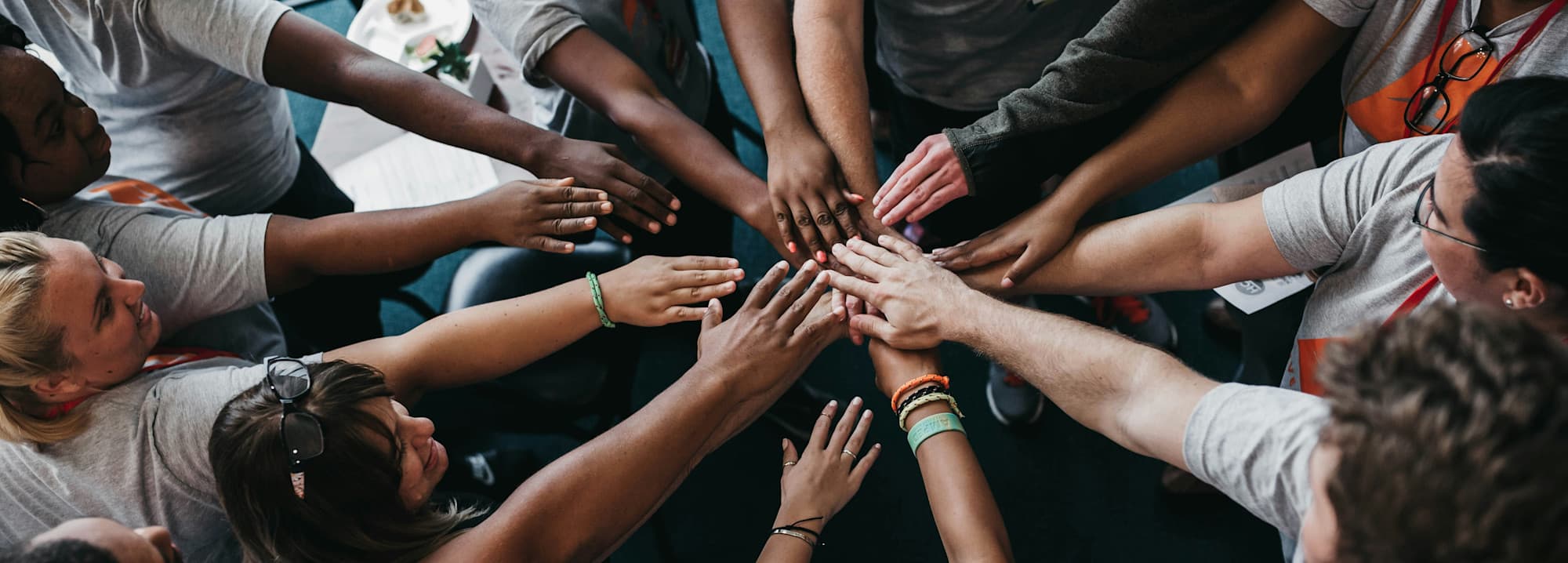
How to Recruit Volunteers for Your Political Campaign
Learning how to recruit volunteers is one of the most critical skills for building a successful political campaign. The best political campaigns are powered by people, not just money, and volunteers can create energy, momentum, and real community engagement.
Whether you're running for a local office like school board or a state-wide seat like governor, your ability to recruit and mobilize volunteers may determine how far your message spreads and how strong your movement grows.
In this guide, we'll walk through actionable, proven strategies for recruiting volunteers, keeping them motivated, and building a grassroots powerhouse that can take on even the best-funded opponents.
Why Volunteer Recruitment Matters
You can’t knock on every door, make every phone call, or post every update yourself. Volunteers multiply your efforts, expand your reach, and demonstrate the strength of your campaign. Every supporter who steps up shows voters that your campaign is a true movement, not a solo effort.
Especially for local and Independent candidates, strong volunteer teams are the great equalizer against wealthier, establishment-backed rivals. Grassroots energy beats big budgets when people feel personally connected to your cause.
7 Proven Strategies for How to Recruit Volunteers
The best volunteer recruitment methods make it easy, personal, and meaningful to get involved. Here's how you can build your team:
#1: Start with a Personal, Specific Ask
Volunteers don't appear magically. You have to invite them directly. Instead of sending broad messages, reach out one-on-one. Tailor your ask to their passions, skills, or past experiences.
Tips for making a personal ask:
Mention what you know they care about. For instance, you can begin your ask by saying, "You mentioned you're passionate about education reform..."
Explain exactly what you’re asking for by saying something like, "We’re canvassing neighborhoods next Saturday to talk about improving our schools."
Use direct, friendly language that feels natural, not scripted.
Personal, specific requests dramatically increase the chances someone says "yes" and shows up ready to help.
LEARN MORE: Use our free resource on sample volunteer asks to sharpen your skills.
#2: Communicate the Impact of Their Contribution
People are more likely to volunteer when they see that their time will make a real difference. Don’t just ask for help — show how their involvement creates real change.
To highlight the impact of their efforts:
Connect their actions to the bigger goal.
Share real numbers and examples.
Thank volunteers publicly and often, reinforcing that their work matters.
When volunteers see that their contribution is powerful, they’re more likely to commit and stay engaged.
#3: Be Clear About Roles and Time Commitment
Vague invitations create hesitation, but clarity inspires action. Outline exactly what you need, when, and how much time it will take.
To ensure your requests are clear:
Define the task, like "Help with phone banking."
Set expectations, such as "Thursday from 5–7 p.m."
Offer support and reassurance by including something like, "Training and scripts provided — no experience needed!"
The easier it is to picture themselves succeeding, the more likely people are to sign up.
#4: Make Volunteering Accessible
Accessibility removes barriers and opens your campaign to more supporters. Offer flexible, inclusive options that meet volunteers where they are.
Some ways to make volunteering easy and accessible are:
Offering virtual opportunities (texting, graphic design, phone banking from home)
Providing childcare support at canvassing events
Organizing carpools or transportation stipends
Allowing short, one-hour shifts for busy schedules
Especially for local campaigns, removing logistical hurdles can significantly grow your volunteer base.
#5: Tap Into Existing Communities
Recruitment is easier when you meet people where they already are. Tap into networks where people already gather and care about issues.
Some places you can look to find volunteers are:
Faith-based organizations
Civic groups and community centers
Advocacy groups and nonprofits
High school and college clubs
Neighborhood associations
A personal ask from a community leader often carries double the weight of a cold invitation, and these partnerships can supercharge your grassroots organizing efforts.
#6: Use Digital Tools to Scale Your Outreach
Technology helps you recruit more volunteers faster. Bring your volunteer recruitment efforts online to reach broader, younger, and more diverse audiences.
To effectively use digital tools to gather volunteers:
Have an easy-to-complete signup form on your campaign website.
Make social media posts promoting opportunities.
Send email newsletters with volunteer spotlights and calls to action.
Host virtual "Get Involved" nights to welcome new volunteers.
If you're wondering how to recruit volunteers for your political campaign or community project at scale, investing in good digital outreach is essential.
#7: Follow Up and Build Relationships
Most people need a few reminders before they take action. Stay persistent but warm.
When following up, follow these best practices:
Send a thank-you message immediately after they express interest.
Remind them about upcoming opportunities.
Celebrate milestones together, like the number of doors knocked or calls made.
Building a real community keeps volunteers motivated and can transform one-time helpers into long-term advocates for your campaign.
LEARN MORE: Want even more tips and insights? Sign up for our free course to learn how to recruit, lead, and organize volunteers.
The Psychology Behind Volunteer Motivation
Understanding why people volunteer is crucial to crafting recruitment messages that truly resonate. Volunteers aren’t just looking for tasks or something to do. They’re looking for meaning, connection, and impact.
Volunteers may choose to volunteer for various reasons, like:
Passion for a Cause: They care deeply about the issues you champion.
Desire for Community Connection: They want to meet like-minded people and feel part of something bigger.
Interest in Developing New Skills: Volunteering offers the chance to learn organizing, communication, and leadership skills.
Search for Meaning and Purpose: Many are looking for ways to make a tangible difference in the world.
To recruit volunteers effectively, speak directly to these deeper motivations. Connect volunteer tasks to the bigger mission to inspire passion. Foster a sense of belonging by making volunteering a social, welcoming experience. Highlight opportunities like public speaking, community organizing, and leadership development.
Most importantly, show volunteers that their contributions truly matter and create meaningful change. When people feel seen, valued, and empowered, they are far more likely to step up and stay engaged for the long haul.
LEARN MORE: Thinking about getting involved? Check out our guide to learn how to volunteer for a political campaign.
Creative Ways to Recruit Volunteers
Going beyond the basics can supercharge your volunteer recruitment. Fresh, fun recruitment approaches can help your campaign stand out and make volunteering feel exciting, social, and rewarding.
Here are creative ways to recruit more volunteers:
Host a Volunteer Open House: A casual meet-and-greet where potential volunteers can learn about opportunities in a low-pressure environment.
Launch a #WhyIVolunteer Challenge: Encourage current volunteers to share short videos or posts on social media about why they joined your campaign.
Partner with Local Organizations: Collaborate with civic groups, nonprofits, and student clubs to co-host events or cross-promote volunteer opportunities.
Offer Peer-to-Peer Referrals: Reward volunteers who recruit friends with fun incentives like campaign swag or special recognition.
Run Friendly Competitions: Challenge volunteers to see who can recruit the most new signups, and recognize winners publicly with shoutouts or small prizes.
The goal is to make volunteering for your campaign feel fun, meaningful, and community-driven, rather than just another task on their list.
LEARN MORE: Explore how volunteers bridge campaigns and communities.
Building a Strong Volunteer Onboarding Process
Recruiting volunteers is just the beginning. To keep volunteers active and motivated, you need a smooth, welcoming onboarding experience that sets them up for success.
To craft an effective volunteer onboarding process:
Greet new volunteers by name, introduce them to other team members, and make them feel like part of the family.
Provide easy-to-follow guides, scripts, FAQs, and short walkthroughs of any digital tools they'll use.
Assign tasks that match their interests and skills — and make their first experiences positive and impactful. Quick wins build confidence. Start new volunteers with small, manageable tasks so they feel successful right away.
An organized, thoughtful onboarding system is one of the best investments you can make in your grassroots campaign's long-term success.
LEARN MORE: Check out our door-to-door canvassing guide to better understand a core responsibility of many campaign volunteers.
Common Volunteer Recruitment Mistakes to Avoid
Even experienced campaigns make mistakes that can slow down volunteer growth. Stay ahead by knowing the pitfalls and planning around them.
Common mistakes to avoid when recruiting volunteers include:
Starting Too Late: Begin volunteer recruitment early, before you need big turnouts for campaign events.
Being Too Vague: Always specify what you need, when, and how much time it will take.
Skipping Follow-Up: Persistence matters. One invite is rarely enough; warm, friendly reminders turn interest into commitment.
Prioritizing Quantity Over Quality: A small group of passionate volunteers is worth far more than a long list of half-hearted signups.
Neglecting Appreciation: Regularly thank and recognize your volunteers. A little gratitude goes a long way toward building loyalty.
By avoiding these common pitfalls, you'll recruit a stronger, more committed volunteer team that can power your local campaign or grassroots effort to victory.
Volunteers Are the Heart of Your Movement
Political campaigns aren’t won alone. They’re built and carried to victory by people who care enough to act.
By mastering how to recruit volunteers in a way that's personal, strategic, and sustainable, you can out-organize, out-heart, and outlast even the biggest establishment players. Grassroots energy, fueled by real community connection, wins elections and changes lives.
At GoodParty.org, we believe that real political change is powered by people, not money.
That's why we offer free and low-cost resources to help you recruit, organize, and win.
Photo by Camylla Battani on Unsplash
Start building your movement today. Sign up to learn how GoodParty.org can help you run (and win) as an Independent voice for your community.

